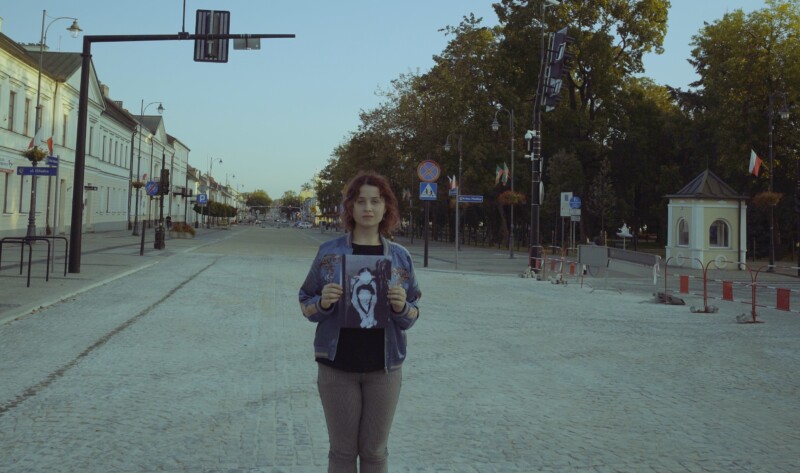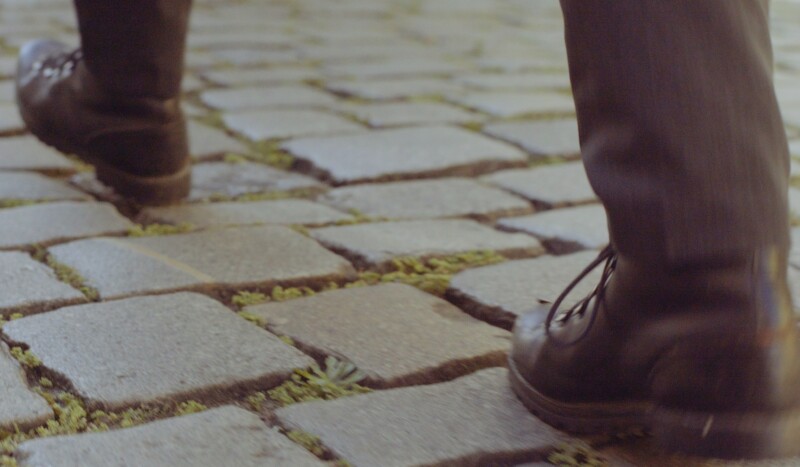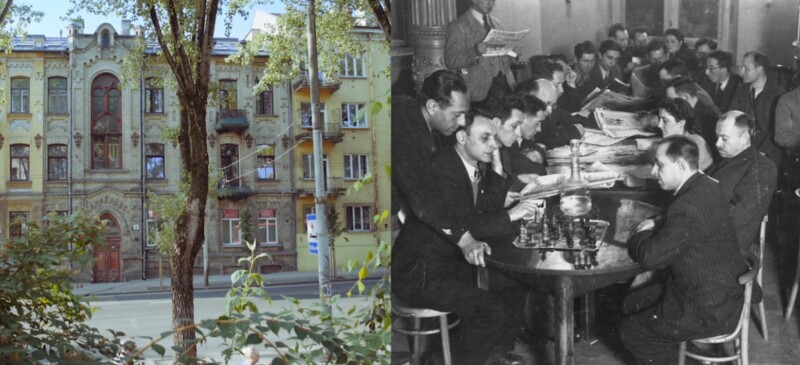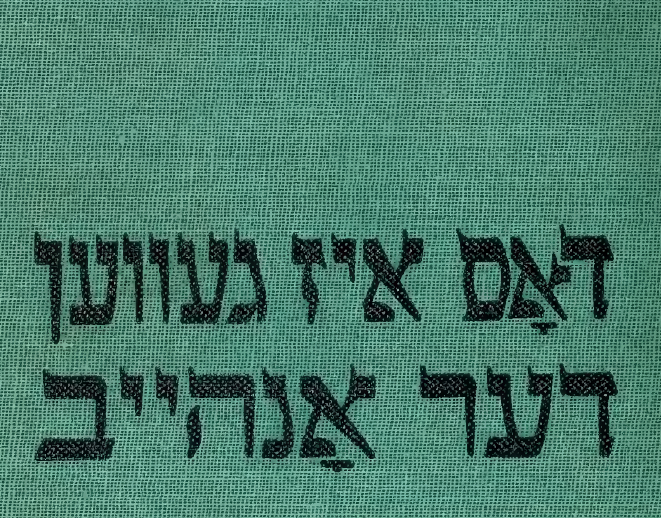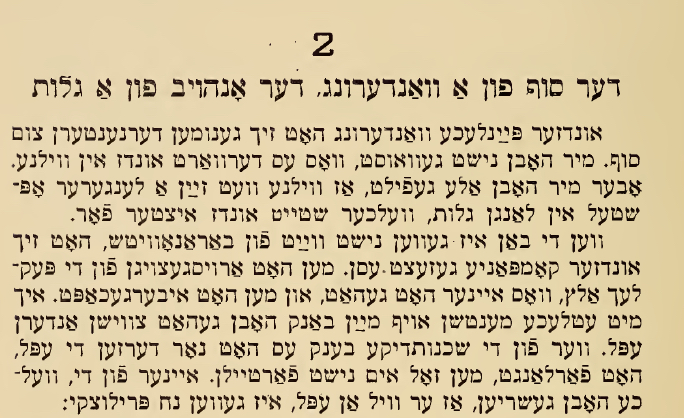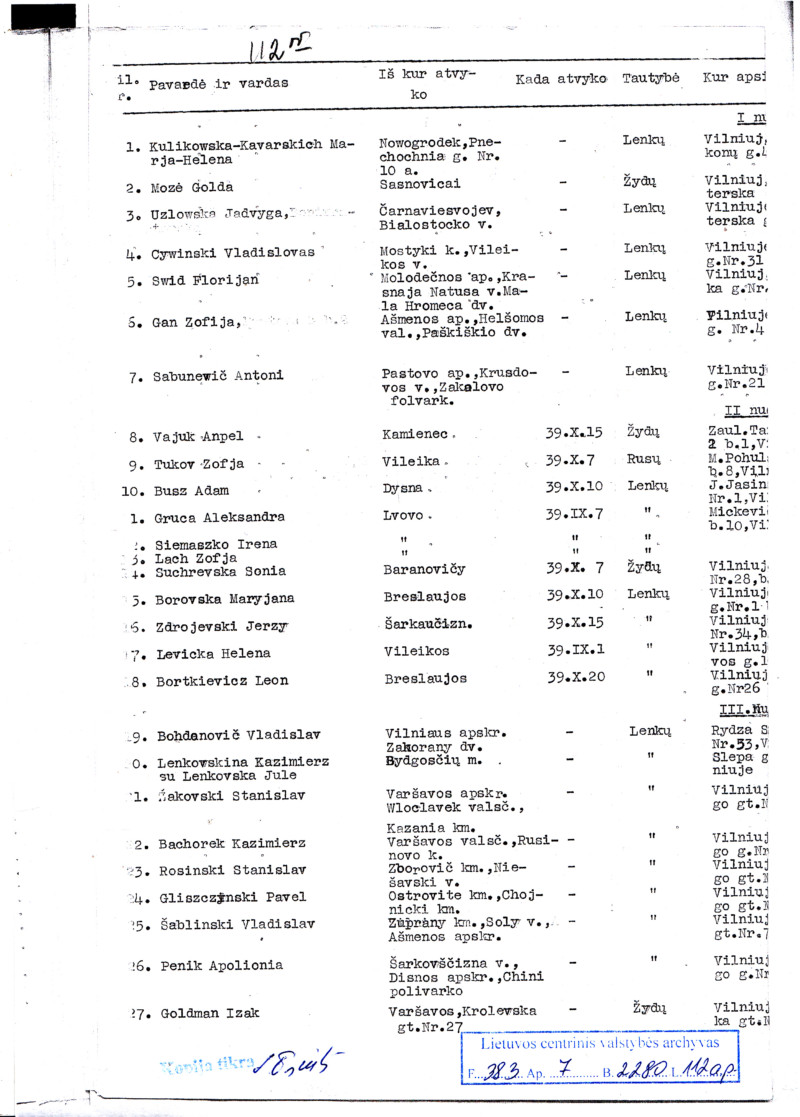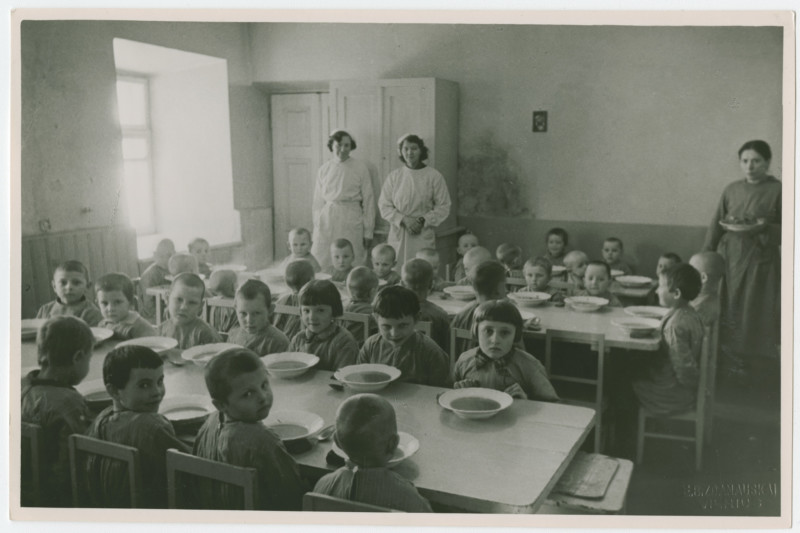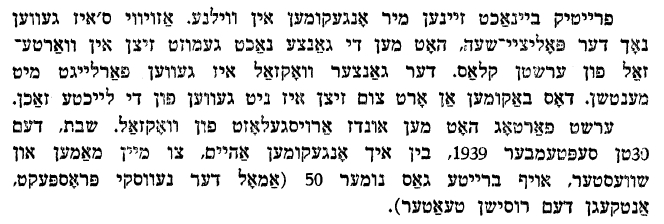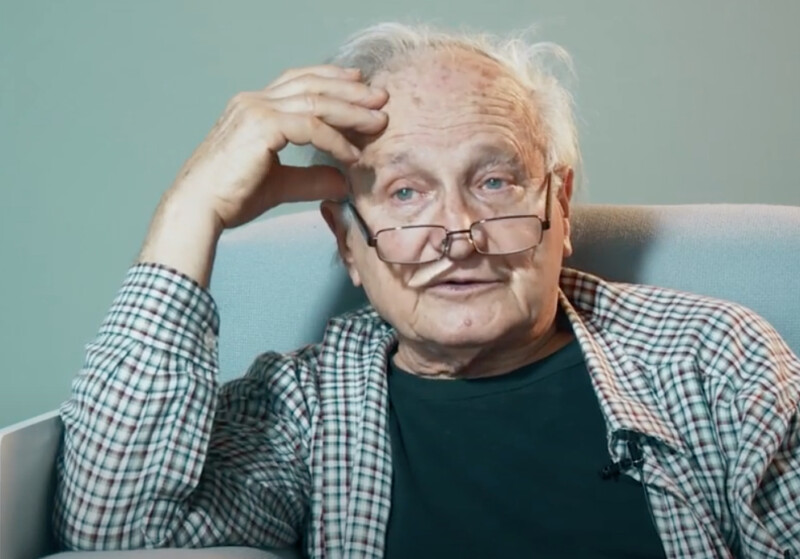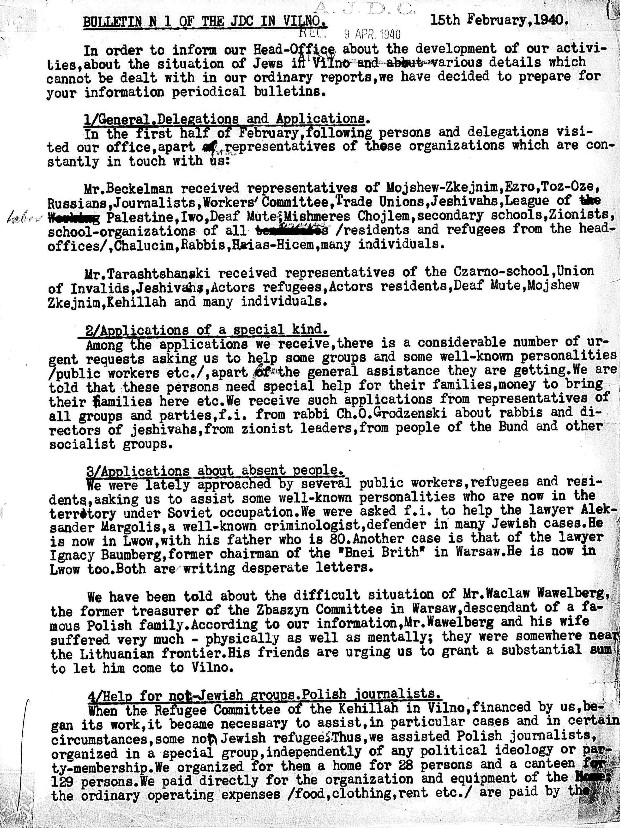איך װיל אונטערשטרײַכן אַז דאָס גוטס, װאָס עס איז צו מיר געטאָן געװאָרן, מײנט ניט, אַז עס איז געטאָן געװאָרן נאָר צו מיר. יעדער פֿון די פּליטים װעט קענען דערצײלן די מעשׂים טובֿים, װאָס עס האָבן צו זײ געטאָן אַנדערע ייִדן פֿון פֿאַרשײדענע קרײַזן אין ליטע. […] לויטן באַקאַנטן שפּרוך אַז “אין אַ נויט דערקענט מען אַ פֿרײַנד” – האָבן ייִדן אין קאָװנער ליטע זיך אַנטפּלעקט װי האַרציקע, נשמהדיקע, װאַרעמע ברידער. זײ האָבן פֿאַרשטאַנען – אויפֿן אײדלסטן אופֿן – צו לינדערן די מאַטעריעלע נויטן פֿון זײערע אומגליקלעכע ברידער און שװעסטער פֿון פּוילן. מיט אומגעװײנטלעכער פֿרײַנטשאַפֿט האָבן זײ זיך געמיט צו הײלן צי האַרץ־ און נשמה־װוּנדן פֿון די פּליטים. […] איך האָב דערקענט די ליטװאַקעס, סײַ װי יחידים און סײַ װי אַ קאָלעקטיװ. איך זאָג עדות, אַז זײ האָבן פֿאַרדינט די װירדיקסטע באַצײכענונג – װאָס עס קלינגט באַזונדערס שטאָלץ אין דער איצטיקער אַכזריותדיקער צײַט – זײ זײַנען געװען מענטשן!
I would like to emphasize that all the good that has happened to me does not mean that it happened only to me. Each of the refugees will be able to tell about the good deeds that other Jews from different circles in Lithuania have done for them. […] According to the well-known saying that “one recognizes a friend in need” – Jews in Kovner Lithuania have shown themselves to be warm, soulful, warm brothers. They understood – in the noblest way – how to alleviate the material hardships of their unhappy brothers and sisters from Poland. With extraordinary friendship, they endeavoured to heal both the wounds of the heart and soul of those who had fled. […] I recognized the Litvaks [Lithuanian Jews], both as individuals and collectively. I testify that they deserve the most honourable title – which sounds particularly proud in the terrible times of today – they were human beings!
Moyshe Mandelman (1895-1963) was born in Siedlce, Poland, and was an active member of the Folks-partey (People’s Party), the Bund, and the Craftsmen’s Union. In 1918, he moved to Kiev, where he worked as an assistant manager of the Jewish Folk Publishing House (Yidisher folks-farlag), collecting materials about the pogroms in Ukraine during the Russian Civil War (1918-1920), as well as folklore and ethnographic material. From 1921 to 1923, he was in Baranovich as the official representative of the Ukrainian Jewish Community and helped thousands of Jews in emigration and remigration matters. From 1929, he traveled on behalf of the Tshisho (Central Jewish School Organization) in Poland, Western Europe, the Baltic States, and Scandivania until he arrived in Vilnius as a refugee in the chaos of the war in 1940. The Jewish aid networks and solidarity among Jews left a lasting impression on him. In 1941, with the help of the Jewish Workers Committee, he was able to leave Vilnius for the United States, where he was active in various Jewish institutions until his death in 1963.
Excerpt:
Mandelman, Moyshe, 1951, S. 1333–1358. In freyd un leyd tsvishn litvishe yidn, in: Lite, Band 1. New York, Kultur-Gezelshaft fun Litvishe Yidn.

